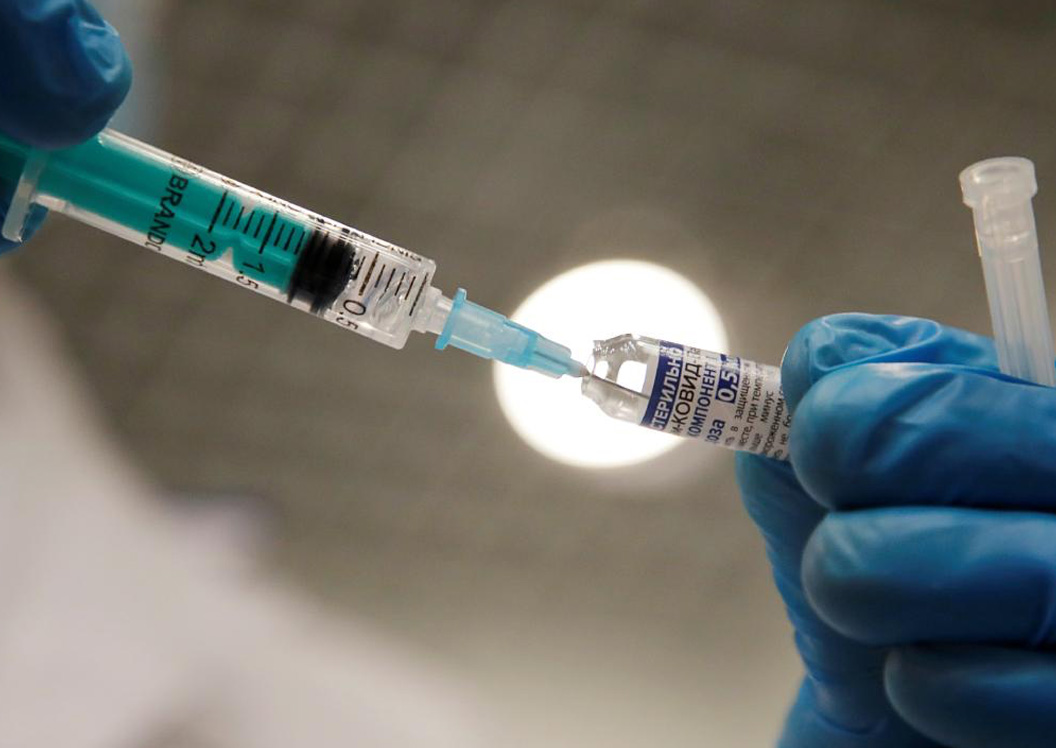
The Sputnik V vaccine, which has been the subject of scepticism since Russia began using it last year before trials had ended, is 91.6% effective..
The Sputnik V vaccine, which has been the subject of scepticism since Russia began using it last year before trials had ended, is 91.6% effective against symptomatic Covid according to data published in one of the world’s leading medical journals.
Results in the Lancet from 20,000 trial participants suggest Sputnik’s efficacy is on a par with that of some of the leading vaccines now in use. There was good efficacy in older adults, who are at highest risk for death, but little diversity, since most participants were white males.
The data may dispel some of the doubts. “The development of the Sputnik V vaccine has been criticised for unseemly haste, corner cutting, and an absence of transparency,” wrote Prof Ian Jones from Reading University in a commentary in the Lancet. “But the outcome reported here is clear and the scientific principle of vaccination is demonstrated, which means another vaccine can now join the fight to reduce the incidence of Covid-19.”
Sputnik V has been given regulatory approval in 16 countries so far including Hungary, which broke ranks with the EU last month by becoming the first bloc member to approve it. The latest data has been submitted to the European regulator for review.
The German government signalled anew on Tuesday that it was prepared to offer Sputnik V to its citizens if it passed relevant clinical trials. The health ministry said it was looking into producing the vaccine together with the pharmaceutical company IDT Biologika in the eastern state of Sachsen-Anhalt.
Last month Angela Merkel, the German chancellor, said the national body responsible for approving vaccines – the Paul Ehrlich Institute – would assist Sputnik V makers in applying for EU regulatory approval.
When Russia granted the vaccine the regulatory go-ahead in August and launched mass vaccinations before data from phase 3 trials was unveiled, scientists expressed concerns and lamented the lack of transparency.
In Germany, questions have been asked about whether the public would be willing to take it. Certain commentators suggest the slow pace of EU vaccine procurement has prompted a rethink.
As with the Chinese vaccines, deals have already been done with a number of middle-income countries. Argentina, Brazil, Mexico and Egypt have orders for Sputnik V, while India has agreed to manufacture 100m doses.
The late-stage trial of the vaccine is ongoing and the aim is to recruit at least 40,000 people. The results so far, in half that number, show that three-quarters received the vaccine. The remainder received a placebo. No serious adverse events were associated with the vaccine, and most reported side-effects were mild,researchers wrote in The Lancet.
This is the fourth vaccine – after those made by Pfizer/BioNTech, Moderna and AstraZeneca/Oxford – for which phase 3 trial data has been published in a peer-reviewed medical journal.
The vaccine, which is backed by the Russian Direct Investment Fund (RDIF), is given in two injections 21 days apart. In the 21 days after the first dose, there were 16 cases of Covid-19 in the 14,964 people (0.1%) in the vaccine group, and 62 cases of the disease in the 4,902 individuals (1.3%) in the placebo group.
The trial included 2,144 participants aged 60 and older; in this subset the vaccine had 91.8% efficacy against symptomatic disease.
Similar to the Oxford/AstraZeneca vaccine, Sputnik V is based on a modified version of adenovirus, a common cold virus. This is tailored to carry genetic instructions for making the coronavirus spike protein, which it passes to human cells. The manufactured coronavirus spike protein then triggers an immune response to protect against Covid-19.
Sputnik V, however, uses a different human adenovirus for each of the two doses to try to trigger a stronger immune response and reduce the risk of resistance.
“This recent positive phase 3 trial … is highly encouraging in terms of efficacy, a lack of serious side-effects and seemingly equivalent protection in older patients,” said Dr Stephen Griffin, associate professor in the school of medicine at the University of Leeds.
This study was not designed to assess the efficacy of just the first dose, but when the researchers looked at the level of protection from day 15 to 21, efficacy against moderate or severe Covid-19 was 73.6%, they said.
Sputnik V is priced at less than $10 (£7.30) a dose, while AstraZeneca aims to sell the Oxford vaccine for $3-$4 an injection. The mRNA vaccines are more expensive at $20 for the Pfizer/BioNTech one and $25 for Moderna’s.
Kirill Dmitriev, the chief executive of RDIF, said it expected to produce 1.4bn doses in 2021 – enough for at least 700 million people.
In December, plans to test a combination of the Oxford/AstraZeneca and Sputnik V vaccines were announced.
No discussions between RDIF and the UK have occurred regarding Sputnik V, Dmitriev said, “but once we have proven that the combined shot is effective, I think it’s possible that we [will] have a discussion on the joint AstraZeneca-Sputnik vaccine.”
Source: https://www.theguardian.com/society/2021/feb/02/sputnik-v-vaccine-has-916-efficacy-against-symptomatic-covid-russian-trial-suggests